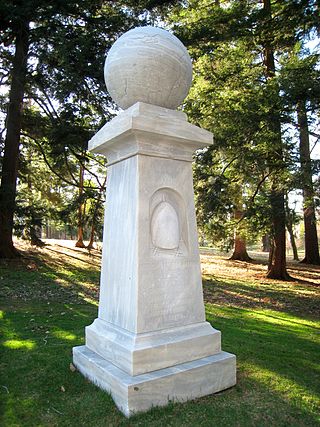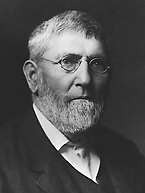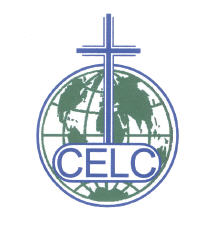Related Research Articles

Mormons are a religious and cultural group related to Mormonism, the principal branch of the Latter Day Saint movement started by Joseph Smith in upstate New York during the 1820s. After Smith's death in 1844, the movement split into several groups following different leaders; the majority followed Brigham Young, while smaller groups followed Joseph Smith III, Sidney Rigdon, and James Strang. Most of these smaller groups eventually merged into the Community of Christ, and the term Mormon typically refers to members of the Church of Jesus Christ of Latter-day Saints, as today, this branch is far larger than all the others combined. People who identify as Mormons may also be independently religious, secular, and non-practicing or belong to other denominations. Since 2018, the LDS Church has emphasized a desire for its members be referred to as "members of The Church of Jesus Christ of Latter-day Saints", or more simply as "Latter-day Saints".

The Rapture is an eschatological position held by some Christians, particularly those of American evangelicalism, consisting of an end-time event when all dead Christian believers will be resurrected and, joined with Christians who are still alive, together will rise "in the clouds, to meet the Lord in the air." The origin of the term extends from the First Epistle to the Thessalonians in the Bible, which uses the Greek word harpazo, meaning "to snatch away" or "to seize". This view of eschatology is referred to as dispensational premillennialism, a form of futurism that considers various prophecies in the Bible as remaining unfulfilled and occurring in the future.
Church of God is a name used by numerous denominational bodies. The largest denomination with this name is the Church of God
Restorationism, also known as Restitutionism or Christian primitivism, is a religious perspective according to which the early beliefs and practices of the followers of Jesus were lost or adulterated after his death and required "restoration". It is a view that often "seeks to correct faults or deficiencies by appealing to the primitive church as normative model".
A Christian denomination is a distinct religious body within Christianity that comprises all church congregations of the same kind, identifiable by traits such as a name, particular history, organization, leadership, theological doctrine, worship style and, sometimes, a founder. It is a secular and neutral term, generally used to denote any established Christian church. Unlike a cult or sect, a denomination is usually seen as part of the Christian religious mainstream. Most Christian denominations refer to themselves as churches, whereas some newer ones tend to interchangeably use the terms churches, assemblies, fellowships, etc. Divisions between one group and another are defined by authority and doctrine; issues such as the nature of Jesus, the authority of apostolic succession, biblical hermeneutics, theology, ecclesiology, eschatology, and papal primacy may separate one denomination from another. Groups of denominations—often sharing broadly similar beliefs, practices, and historical ties—are sometimes known as "branches of Christianity". These branches differ in many ways, especially through differences in practices and belief.

The Missionary Church is an evangelical Christian denomination of Anabaptist origins with Wesleyan and Pietist influences.

The Church of Christ was the original name of the Latter Day Saint church founded by Joseph Smith. Organized informally in 1829 in Upstate New York and then formally on April 6, 1830, it was the first organization to implement the principles found in Smith's newly published Book of Mormon, and thus its establishment represents the formal beginning of the Latter Day Saint movement. Later names for this organization included the Church of the Latter Day Saints, the Church of Jesus Christ, the Church of God, the Church of Christ of Latter Day Saints, and the Church of Jesus Christ of Latter Day Saints.
The group of churches known as the Christian Churches and Churches of Christ is a fellowship of congregations within the Restoration Movement that have no formal denominational affiliation with other congregations, but still share many characteristics of belief and worship. Churches in this tradition are strongly congregationalist and have no formal denominational ties, and thus there is no proper name that is agreed to apply to the movement as a whole. Most congregations in this tradition include the words "Christian Church" or "Church of Christ" in their congregational name. Due to the lack of formal organization between congregations, there is a lack of official statistical data, but the 2016 Directory of the Ministry documents some 5000 congregations in the US and Canada; some estimate the number to be over 6,000 since this directory is unofficial. By 1988, the movement had 1,071,616 members in the United States.

The American Board of Commissioners for Foreign Missions (ABCFM) was among the first American Christian missionary organizations. It was created in 1810 by recent graduates of Williams College. In the 19th century it was the largest and most important of American missionary organizations and consisted of participants from Protestant Reformed traditions such as Presbyterians, Congregationalists, and German Reformed churches.
David Whitmer was a leader in the Church of Jesus Christ of Latter Day Saints who eventually became the most interviewed of the Three Witnesses to the Book of Mormon's golden plates.

Far West was a settlement of the Latter Day Saint movement in Caldwell County, Missouri, United States, during the late 1830s. It is recognized as a historic site by the U.S. National Register of Historic Places, added to the register in 1970. It is owned and maintained by the Church of Jesus Christ of Latter-day Saints.

David Lipscomb was a minister, editor, and educator in the American Restoration Movement and one of the leaders of that movement, which, by 1906, had formalized a division into the Church of Christ and the Christian Church. James A. Harding and David Lipscomb founded the Nashville Bible School, now known as Lipscomb University in honor of the latter.

The Confessional Evangelical Lutheran Conference (CELC) is an international fellowship of 34 Confessional Lutheran church bodies.

The Church of North India (CNI) is the dominant united Protestant church in northern India. It was established on 29 November 1970 by bringing together most of the Protestant churches working in northern India. It is a province of the worldwide Anglican Communion and a member of the World Methodist Council and the World Communion of Reformed Churches. The merger, which had been in discussions since 1929, came eventually between the Church of India, Pakistan, Burma and Ceylon (Anglican), the Methodist Church, Disciples of Christ, and some congregations from the United Church of Northern India.
East Memphis is a region of Memphis, Tennessee with several defined and informal subdivisions and neighborhoods such as Colonial Acres, White Station-Yates, Sherwood Forest, Normal Station, High Point Terrace, Belle Meade, Normandy Meadows, St. Nick, Pleasant Acres, Balmoral, and Ridgeway. The general boundaries are informal:

Marathi Christians are an ethnoreligious group of the Indian state of Maharashtra who accepted Christianity during the 18th and 19th centuries during the East India Company, and later, the British Raj. Conversions to Protestantism were a result of Christian missions such as the American Marathi Mission, Church Mission Society and the Church of England's United Society for the Propagation of the Gospel.

Christianity is a minority religion in Maharashtra, a state of India. Approximately 79.8% of the population of Maharashtra are Hindus, with Christian adherents being 1.0% of the population. The Roman Catholic archdiocese whose seat is in Maharashtra is the Roman Catholic Archdiocese of Bombay. There are two different Christian ethnic communities in Maharashtra: the Bombay East Indians, who are predominantly Roman Catholic, and the Marathi Christians, who are predominantly Protestant with a small Roman Catholic population.

Methodist Church in India is a Protestant Christian denomination of India.
The Methodist Church of Sri Lanka is a Protestant Christian denomination in Sri Lanka. Its headquarters is in Colombo and was established on 29 June 1814. It is a member of the World Council of Churches, the Christian Conference of Asia, the National Christian Council of Sri Lanka and the World Methodist Council.
The name of the Church of Jesus Christ of Latter-day Saints is derived from an 1838 revelation church founder Joseph Smith said he received. Church leaders have long emphasized the church's full name, and have resisted the application of informal or shortened names, especially those which omit "Jesus Christ". These informal and shortened names include the "Mormon Church", the "LDS Church", and the "Church of the Latter-day Saints".
References
- ↑ Beam, Christopher (12 July 2006). "How Bombay became Mumbai". Slate.